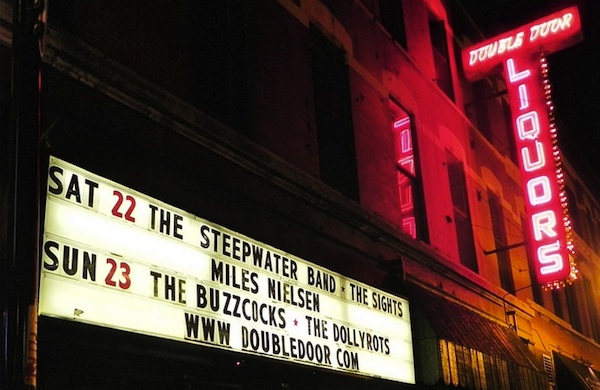
By: Alex Wood
New developments were recently revealed in the lengthy timeline of the eviction of Wicker Park’s iconic Double Door.
The venue had initially failed to renew its lease, which ended in October 2015, at which point the building's owners looked to sell the space to a new business. After a lengthy court battle, the building’s owners were able to legally evict the venue in February of 2017.
But what happened outside of court reveals a shocking back-story that the public didn’t see.
New reports from Project Six, a Chicago-based political watchdog group, reveal that 1st Ward Alderman Proco Joe Moreno purportedly abused his powers to try to pressure the building’s owners into keeping Double Door in business.
The Alderman proposed to change zoning rules for the property to limit what businesses could occupy the space in the future. This would make it more difficult for its owners to find new tenants, as well having the potential to cost them thousands of dollars in future rent payments, according to reports.
This zoning proposal would only affect 1572 N. Milwaukee Ave., the Double Door property.
Known as “spot-zoning,” this process would restrict future commercial establishments on the street level as well as prevent the renewal of leases for residential tenants.
In a private discussion with Brian Strauss, one of the property owners, the Alderman’s threats became more direct.
Alderman Moreno threatened to prevent Strauss from being able to get new tenants for three years, claiming he would send inspectors to the site daily, and telling Strauss to “come back to me on your knees” when ready to negotiate.
“It’s gonna be an empty building with no income for you or your family,” Moreno told Strauss.
Video evidence of this confrontation exists.
The Double Door was inarguably a vital part of Wicker Park’s identity, existing since 1994 and hosting a massive number of big names and local acts alike. It’s location at the “six corners” hub of Milwaukee and Damen was practically an anchor of the neighborhood.
While residents and music fans were severely upset by the initial news of Double Door’s potential closure, was Moreno’s use of “aldermanic privilege” justified or morally acceptable? Was the Alderman simply standing up for the community?
As it turns out, there may have been a private interest for Moreno’s involvement.
The Double Door donated more than $7,500 to Moreno’s political committees since 2013, according to campaign finances uncovered by Project Six. The building’s owners, on the other hand, have not donated to Moreno.
In the end, Moreno’s strong-arming did little to keep the beloved Double Door open, outside of bringing up some issues of political morals and ethics in local government, and creating an especially sad end to the prolonged demise of the club’s 23-year existence.
Read Project Six's detailed report here, and view the confrontational YouTube clip below.